#BlackBotanistsWeek: Celebrating Black Scientists at the Danforth Center
In celebration of Black Botanists Week, we want to highlight the important work of Black botanists at the Danforth Center, including Dr. Kevin Cox, Kiona Elliott, Dr. Seth Polydore, Taylor Harris, and Tira Jones. Through their research and their dedication to making plant science more inclusive, Kevin, Kiona, Seth, Taylor, and Tira are making the Danforth Center and the plant science community a better place.
Earlier this year, Kevin, Kiona, and Taylor published an excellent letter in The Plant Cell, “Creating supportive environments in academia for Black scientists to thrive”. “For people to thrive and realize their full potential, they also need to be in a fostering environment/culture that supports them and allows them to grow,” writes Kevin, Kiona, and Taylor. “Unfortunately, this very often is not the case with Black students/scientists studying in the plant sciences.” Their paper outlines challenges they have faced as people of color, as well as key resources that have or could have aided them in their career journeys.
Tira Jones has focused on improving cassava for smallholder farmers in sub-Saharan Africa. Through her work at the Center, she has become passionate about training visiting scientists from Africa. “Knowing that I am making an impact on other people in the world and improving food security through plant science is really enjoyable to me,” she says.
Dr. Seth Polydore is collaborating with teams across the Danforth Center to develop genetic and phenotypic resources for Camelina sativa, a promising biofuel crop and platform for producing other high-value compounds. “I want to latch myself on to the important projects that will have an impact on the world,” says Seth.
Keep reading to learn more about Kevin, Kiona, Seth, Taylor and Tira.
Meet Dr. Kevin Cox
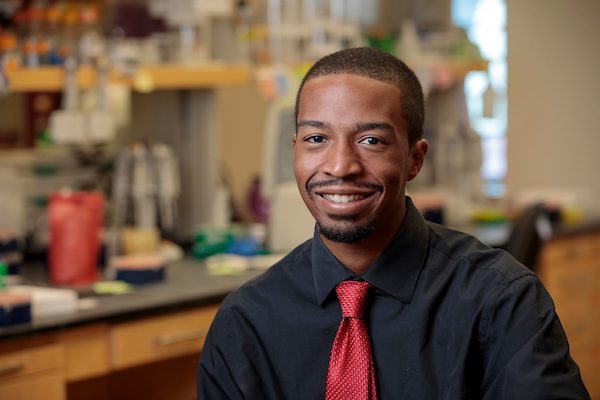
Credit: Howard Hughes Medical Institute 2019 Whitney Curtis
Dr. Kevin Cox is a Postdoctoral Associate in Dr. Blake Meyers’ Lab and an HHMI Hanna Gray Fellow.
What Kevin studies at the Danforth Center: I’m interested in how plants defend themselves against microbes at a cellular level. This involves me using high resolution RNA-sequencing technologies to study what genes are being expressed from individual cells during infection. Understanding how plants combat against microbes will help us identify ways to improve crop yields.
Why he enjoys working with plants: Plants are so cool and under-rated! They provide so much for us in terms of oxygen, food, biofuel, etc. I continue to be fascinated by how resilient they are in finding ways to grow in the least optimal environment.
Meet Kiona Elliott
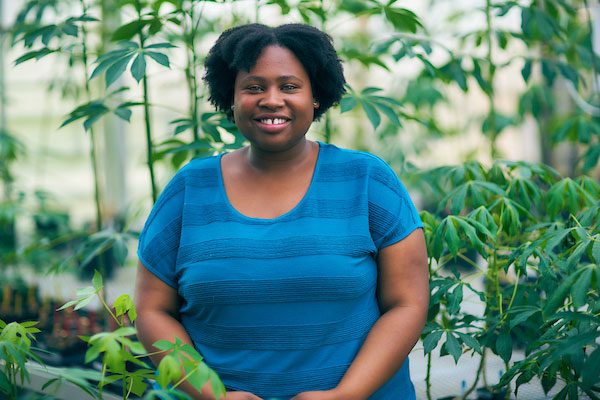
Kiona Elliott is a Graduate Student at Washington University in St. Louis in Dr. Rebecca Bart’s Lab and a National Science Foundation Graduate Fellow.
What Kiona studies at the Danforth Center: I study host-pathogen interactions in cassava, a food staple for over 800 million people globally. The production of cassava is threatened by bacterial blight disease caused by the pathogen Xanthomonas. I investigate the genetic mechanisms that make cassava susceptibility to Xanthomonas . Ultimately, this work can help us reduce and understand plant vulnerability to disease.
Why she enjoys working with plants: I enjoy working with plants because they are more complex than you might initially think. I am fascinated by the ways that plants survive in sub-optimal conditions and how they defend themselves against microbes. I am also passionate about food security and find it rewarding to contribute to research that can improve crop production.
Follow along with Kiona Elliott on Twitter.
Meet Taylor Harris
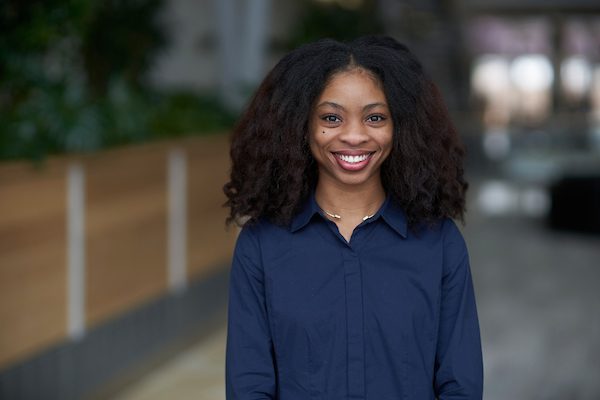
Taylor Harris is a Graduate Student at Washington University in St. Louis in Dr. Rebecca Bart’s Lab and a Chancellor’s Graduate Fellow.
What Taylor studies at the Danforth Center: I study interactions between two cotton pathogens, Xanthomonas citri and Pseudomonas syringae, and how their interactions may help them cause disease in cotton.
Why she enjoys working with plants: Working with plants allows me to combine my passion for plants and biology. I enjoy working with them because they’re fascinating! Like us, plants can get infected by pathogens and sometimes we can see interesting symptoms from these interactions. Learning about the biology behind how plants respond to pathogens and vice versa is pretty cool!
Follow along with Taylor on Twitter.
Meet Dr. Seth Polydore
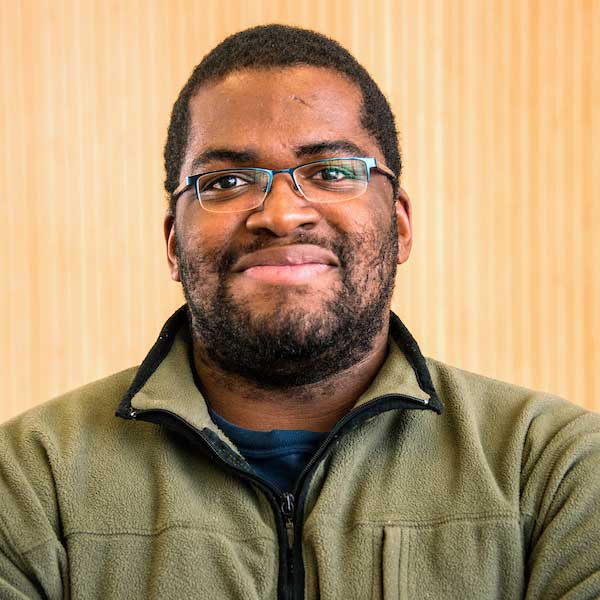
Dr. Seth Polydore is a Postdoctoral Associate in the Data Science Core Facility.
What Seth studies at the Danforth Center: I work in the Data Science Facility under Dr. Noah Fahlgren. The work we do is varied, but one of the projects I’m most excited about at the moments is that we are investigating the genetic underpinnings of agronomically important traits in Camelina sativa.
Why he enjoys working with plants: Plants are societally important; they are our food, they liven up a room, they provide oxygen, etc. However, plants do all of this while being a sessile organism. I think the way plants have to respond to both the ever-changing ground and air environments without simply moving to a more amenable environment is very interesting.
Meet Tira Jones
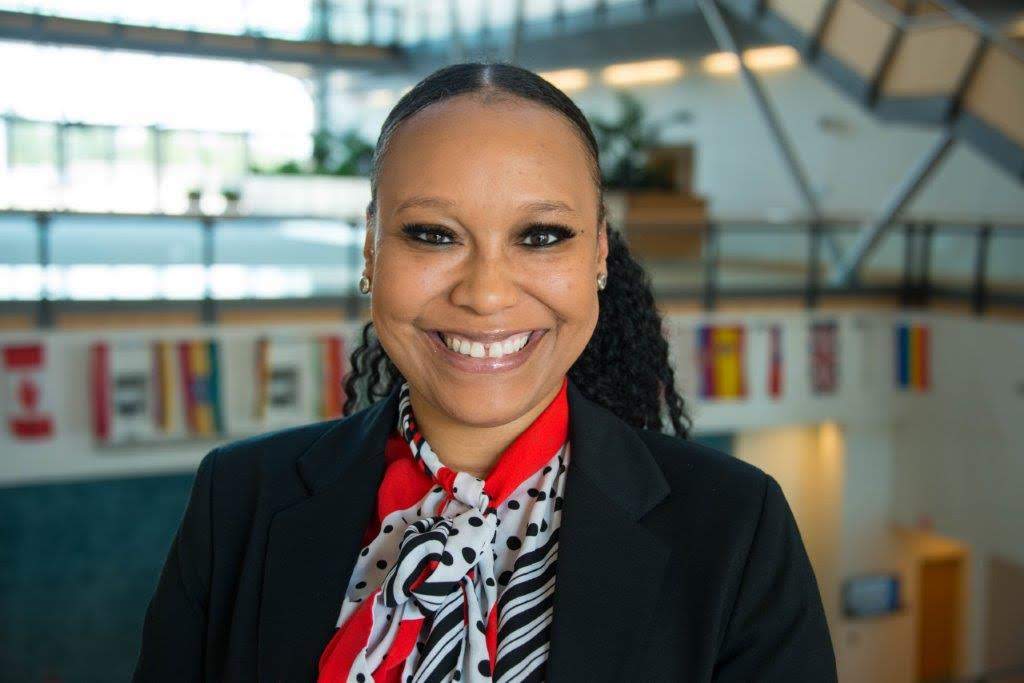
Tira Jones is a Senior Laboratory Technician in Dr. Nigel Taylor’s Lab.
What Tira studies at the Danforth Center: I study Cassava Plant Transformations where I focus on producing and delivering quality transgenic plants to farmers in Africa for Field testing. I also work on developing ways to enhance the Agrobacterium-mediated Transformation System.
Why she enjoys working with plants: Plants can brighten up your day and add so much beauty to life. I enjoy working with cassava plants because I'm enhancing a staple food crop for farmers in Africa. Watching my plants develop from a single cell to growing in the field is so inspiring and motivate me to do better in life and with my work.
We are honored to be able to celebrate Kevin, Kiona, Taylor, Seth and Tira for Black Botanists Week, because we believe that the strength of the Danforth Center community and the plant science community lives in the diversity of our scientists. While it is proven that diversity in the plant sciences creates more innovation and problem-solving, the Danforth Center also believes that being a diverse, equitable, and inclusive organization is a priority to building our community.
Thank you to Dr. Kevin Cox, Kiona Elliott, Taylor Harris, Dr. Seth Polydore, and Tira Jones for all that you do for the Danforth Center and the plant science community. Follow along with #BlackBotanistsWeek on Twitter to meet more Black Botanists!